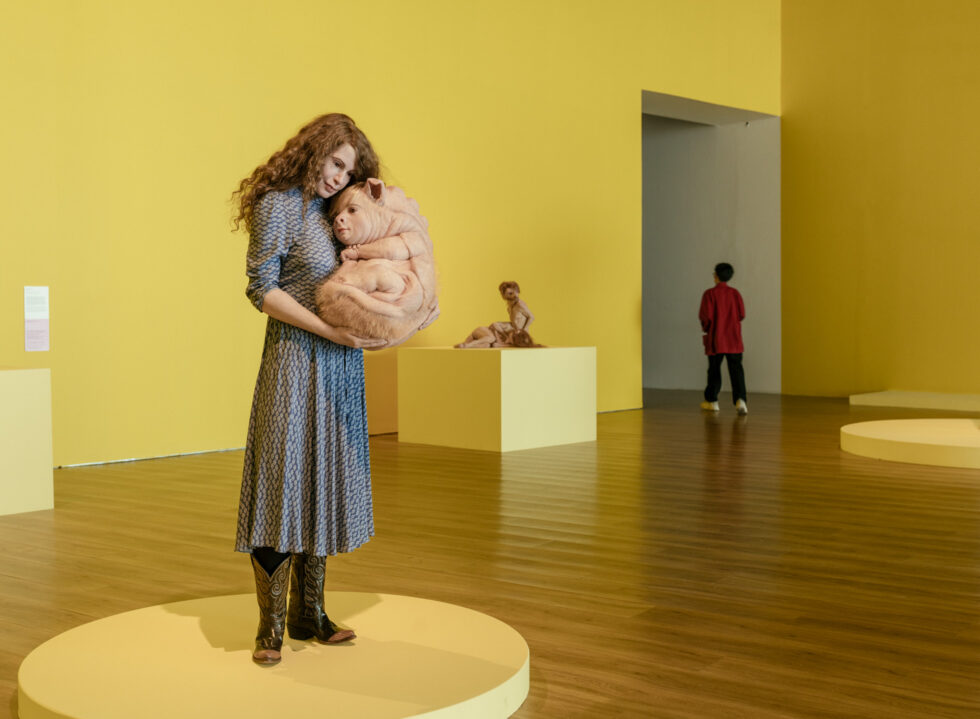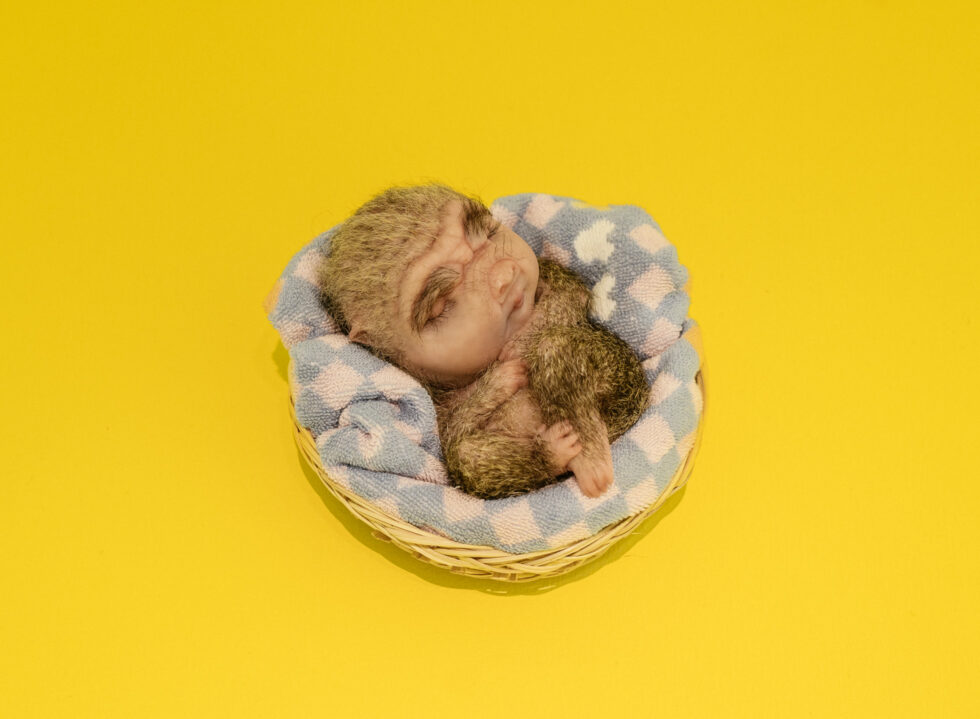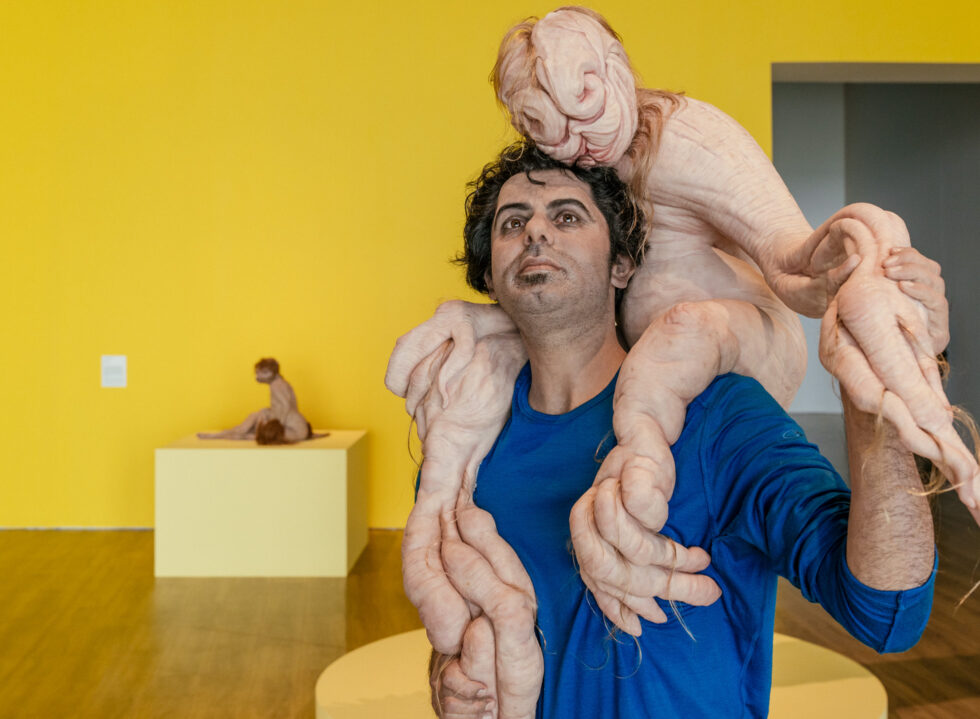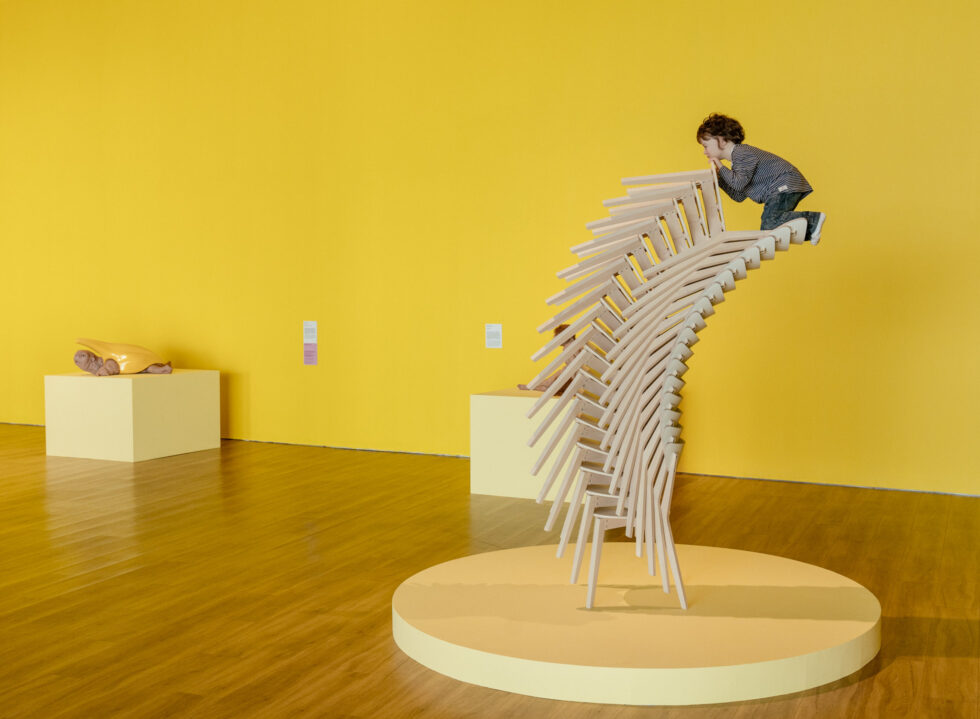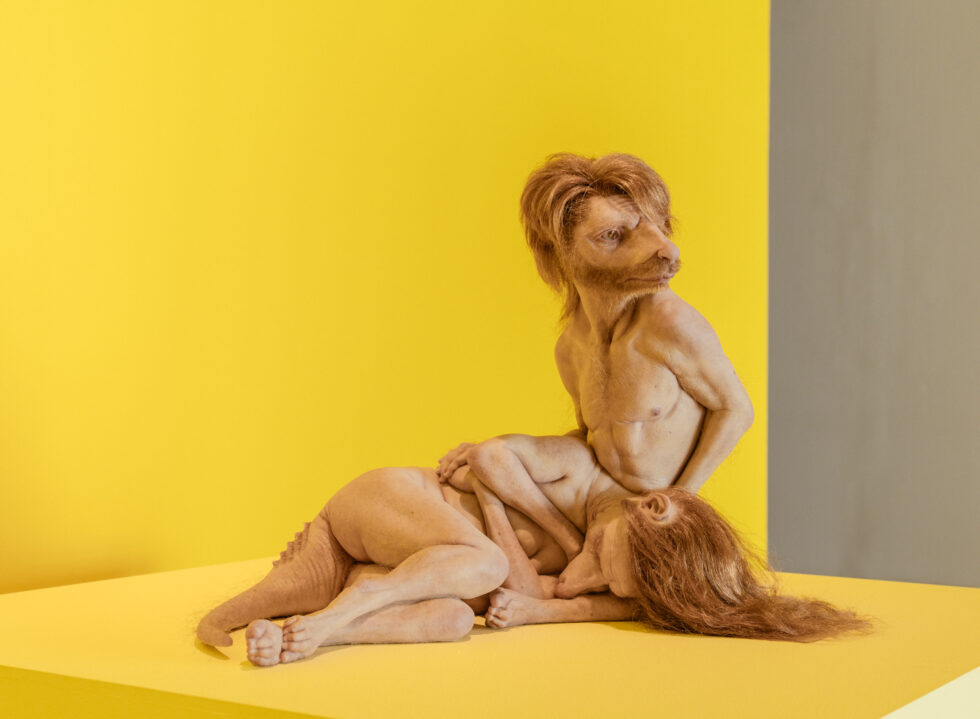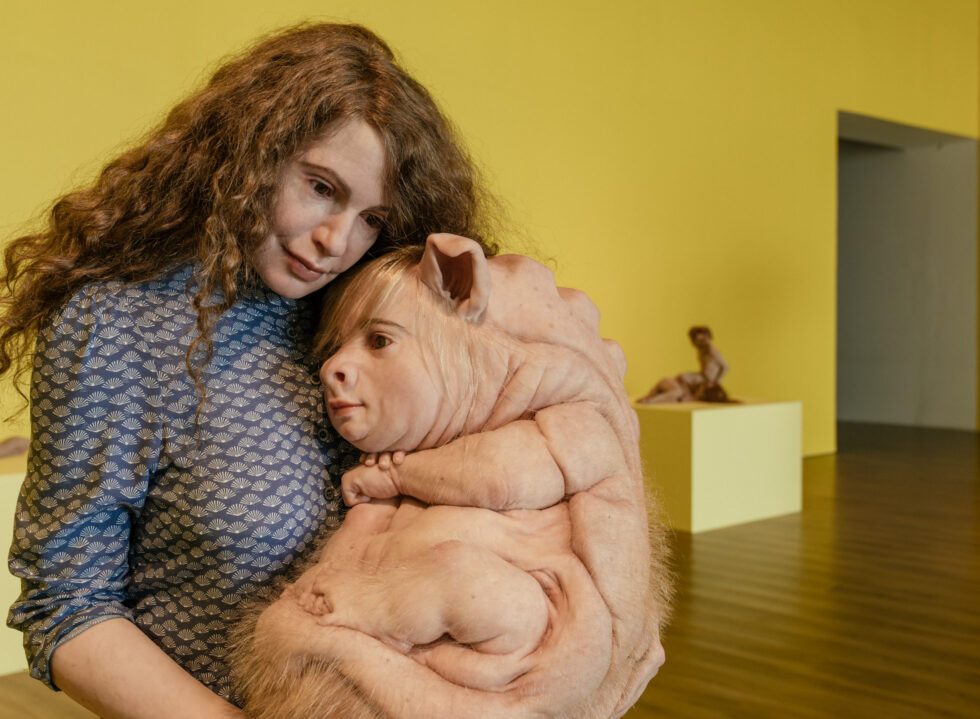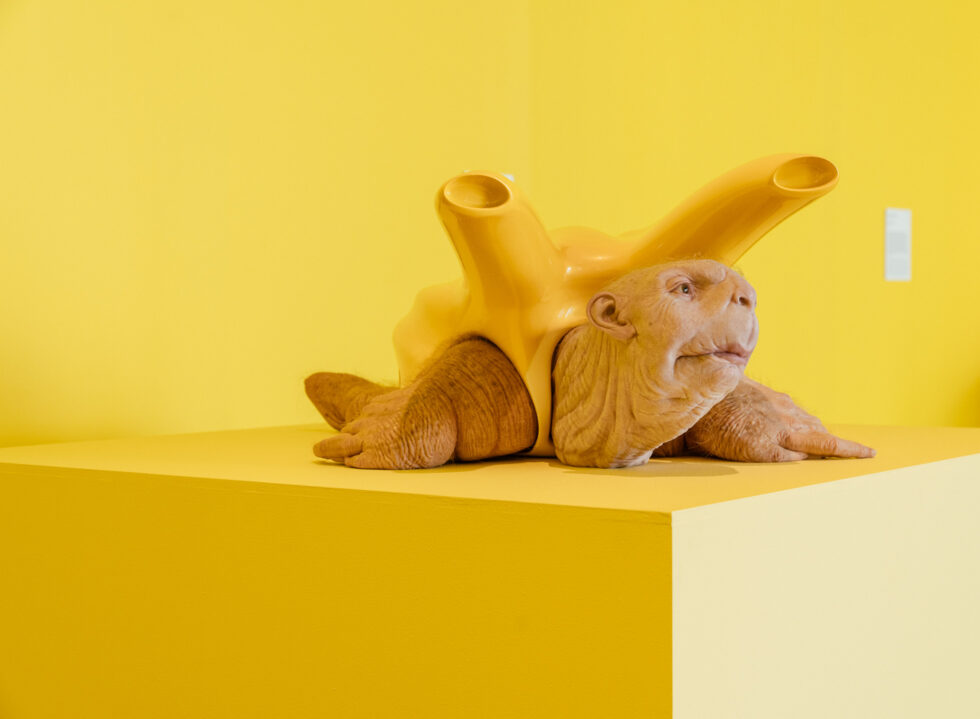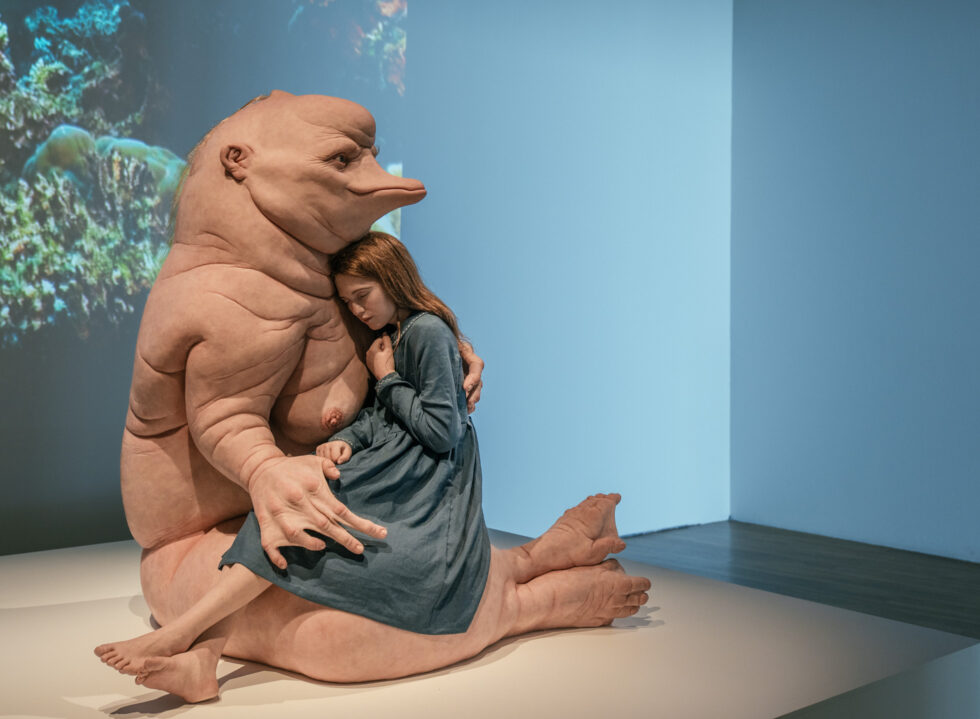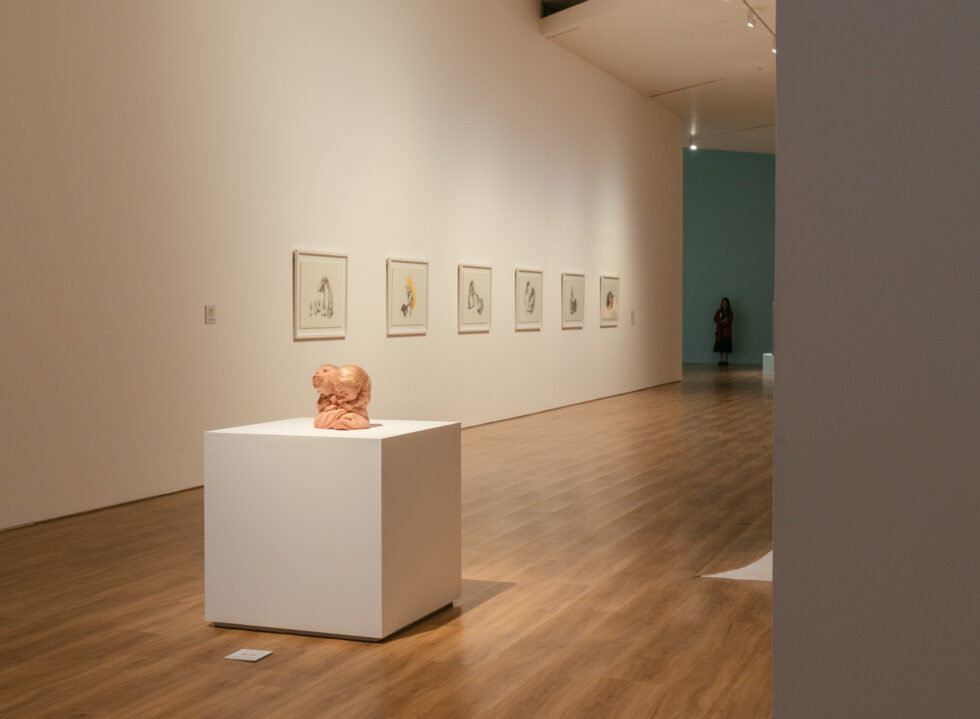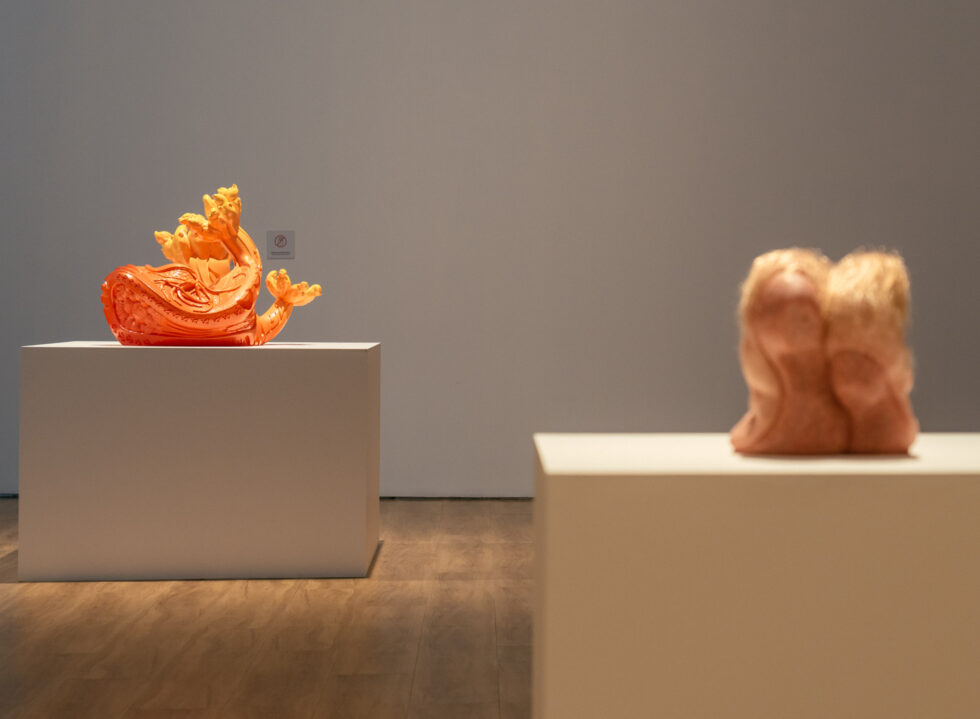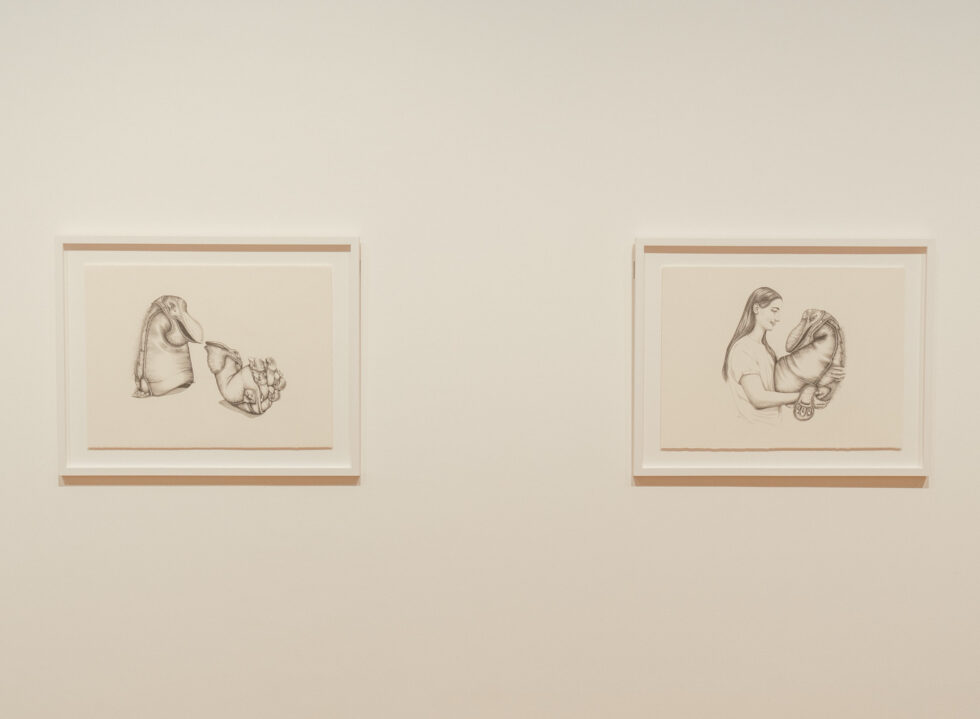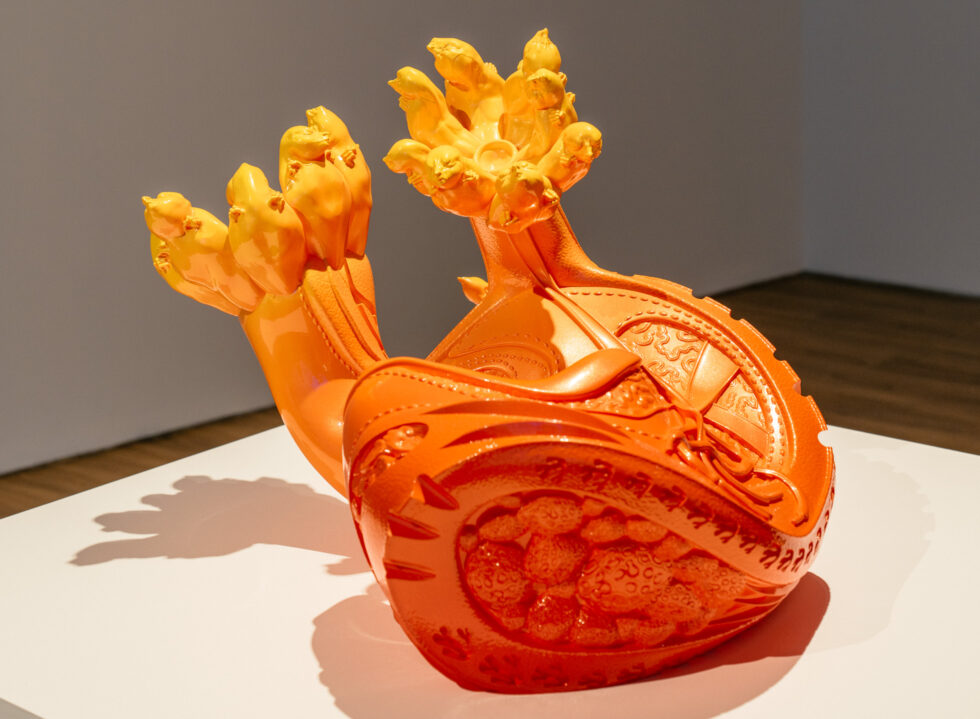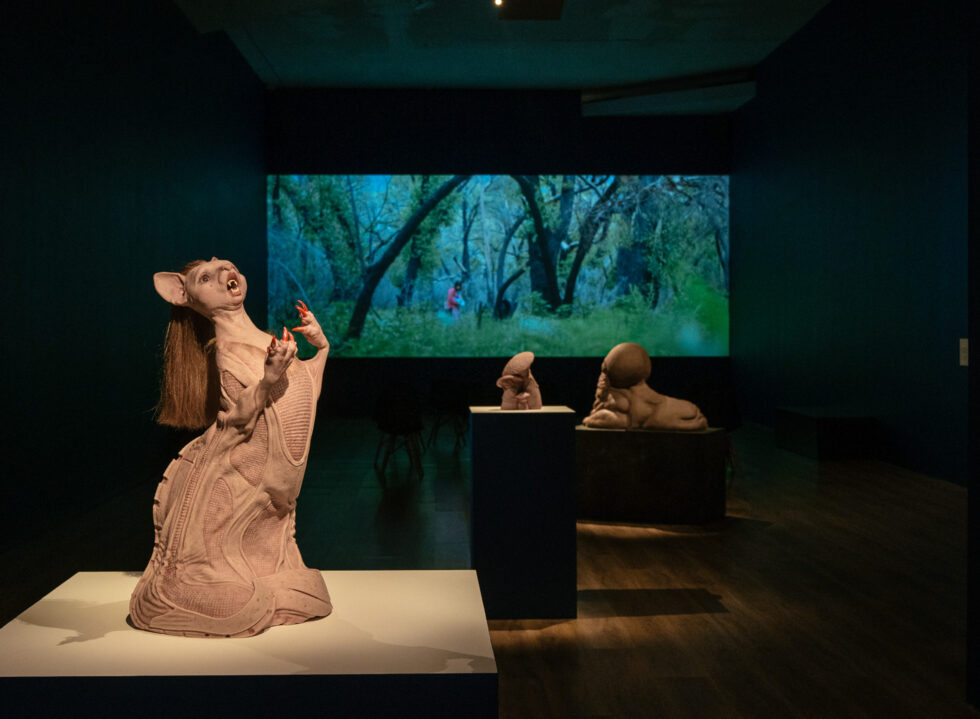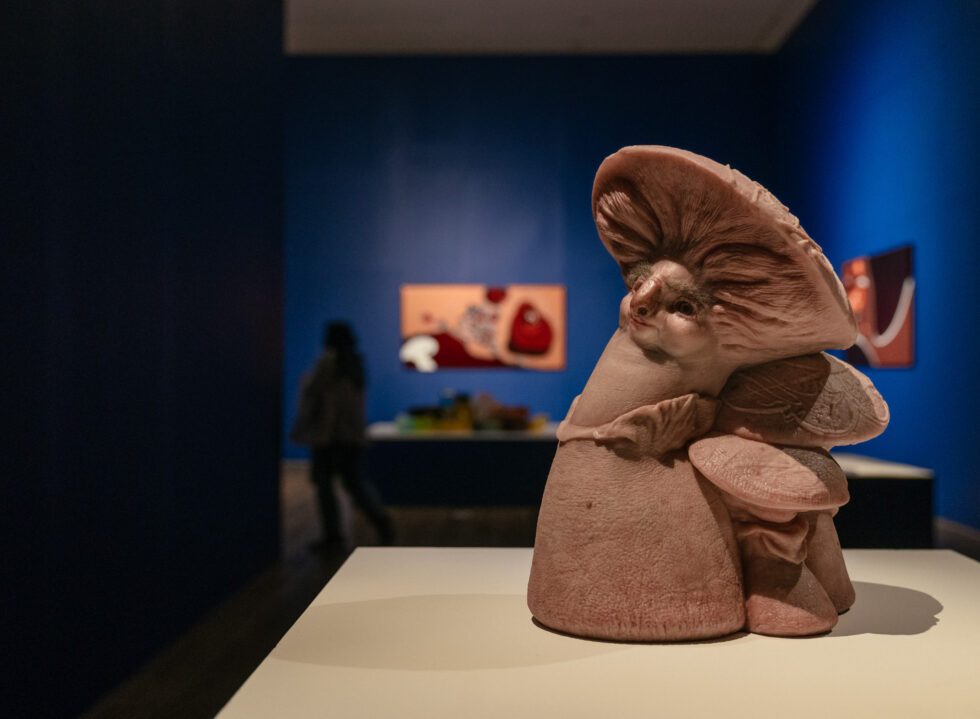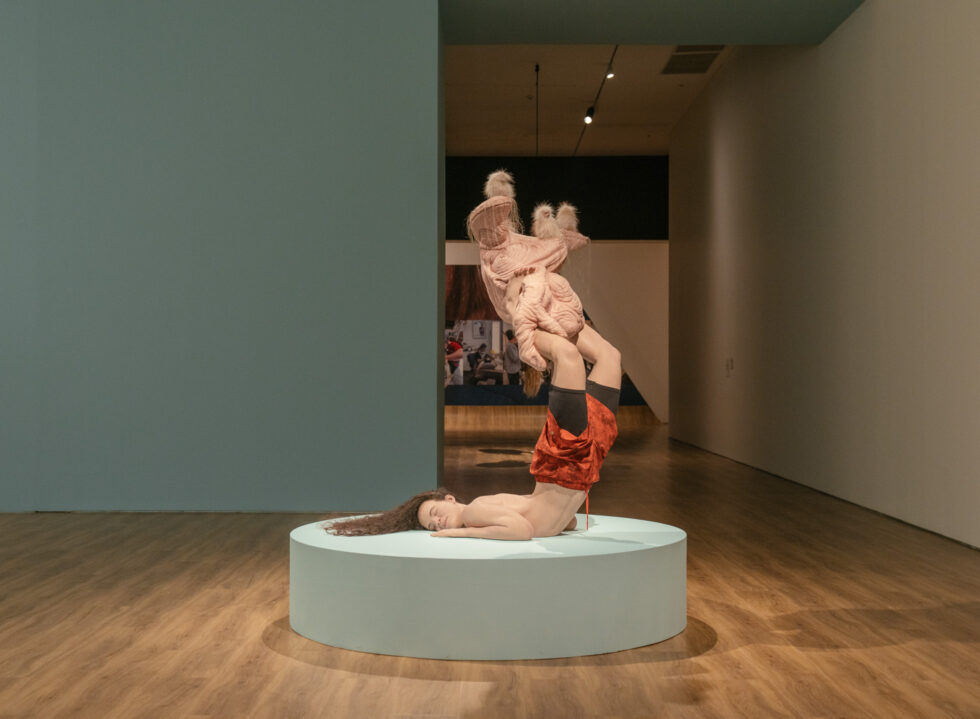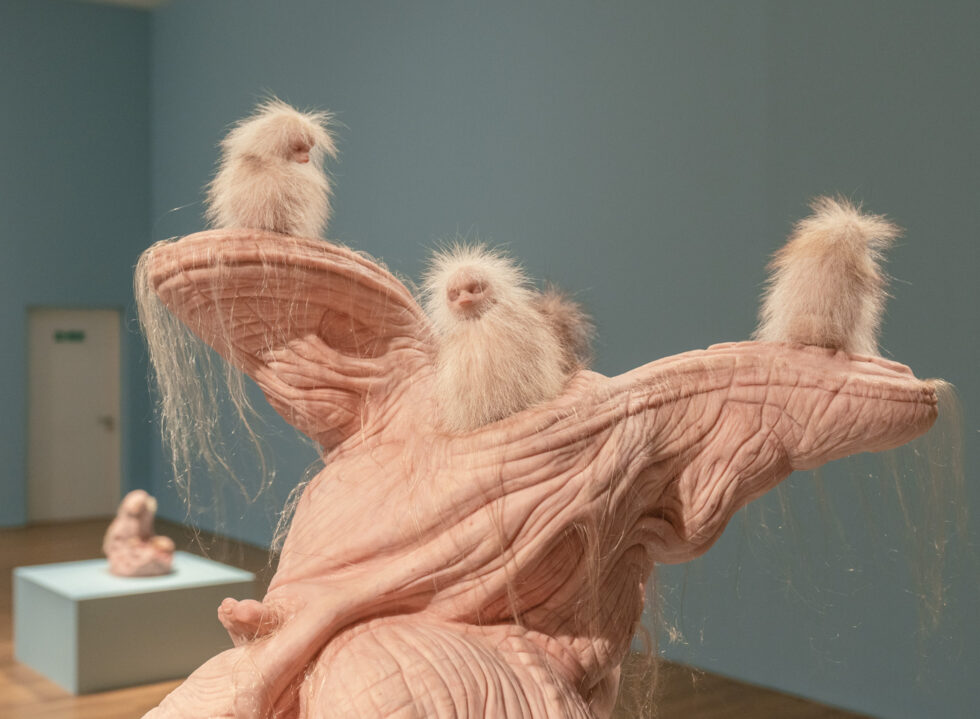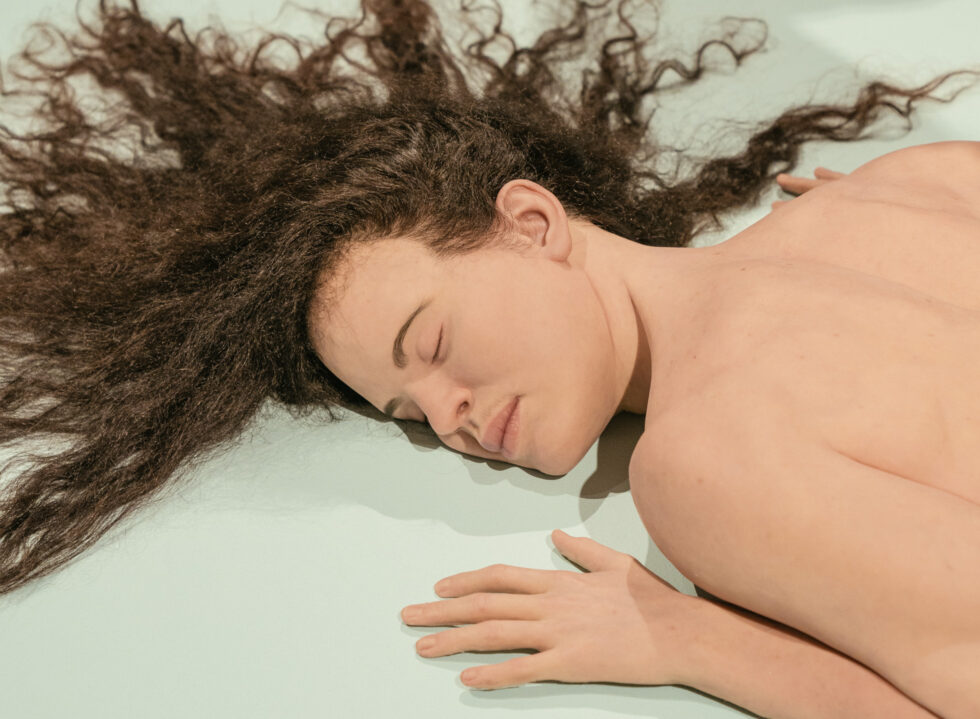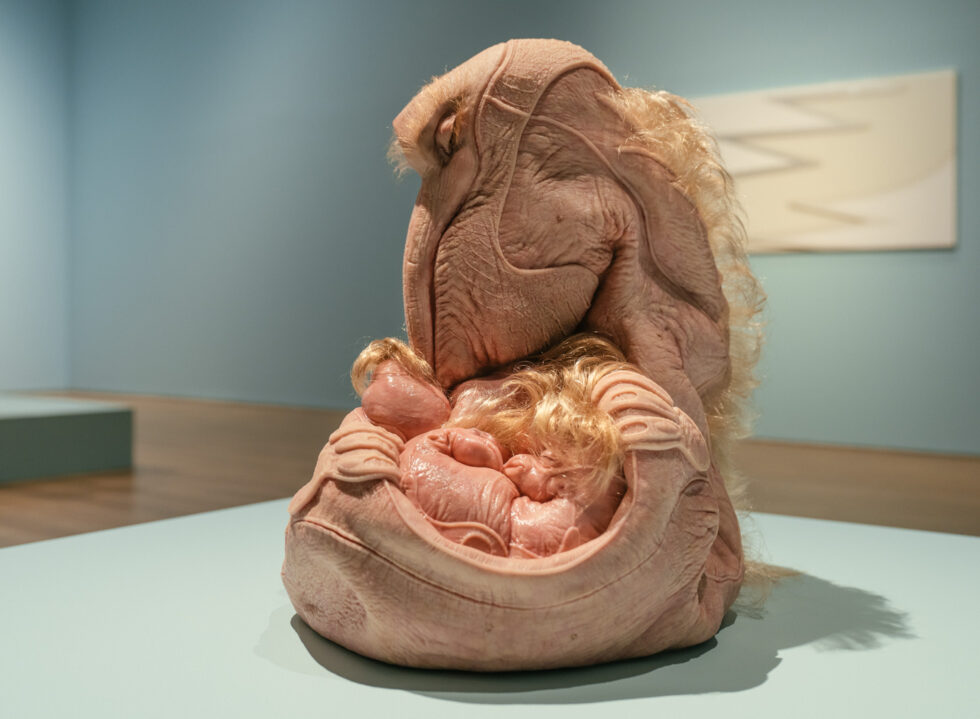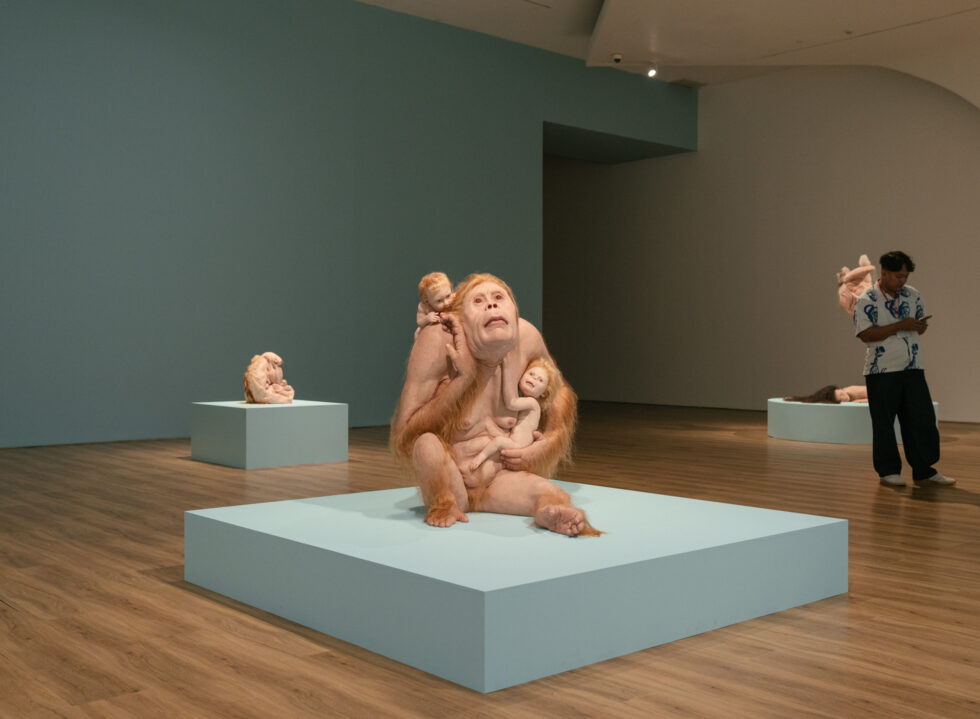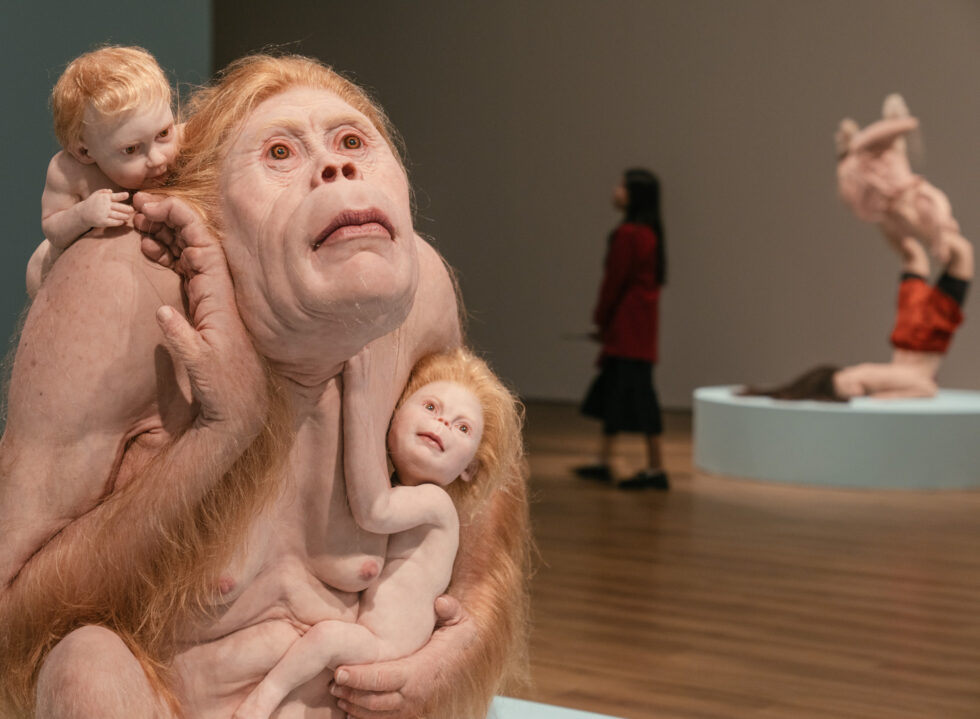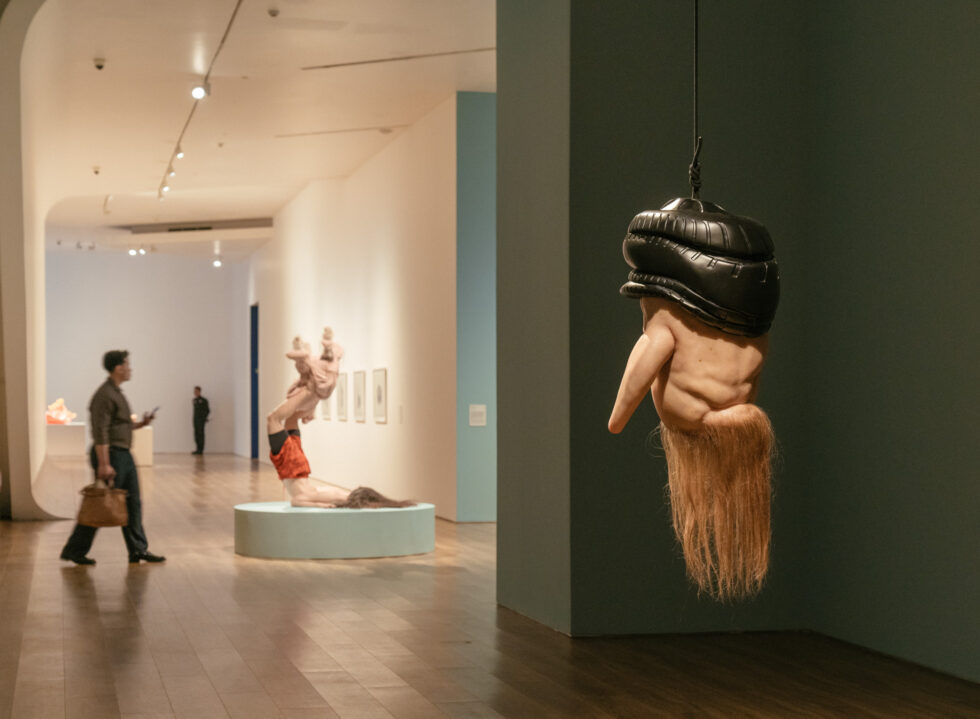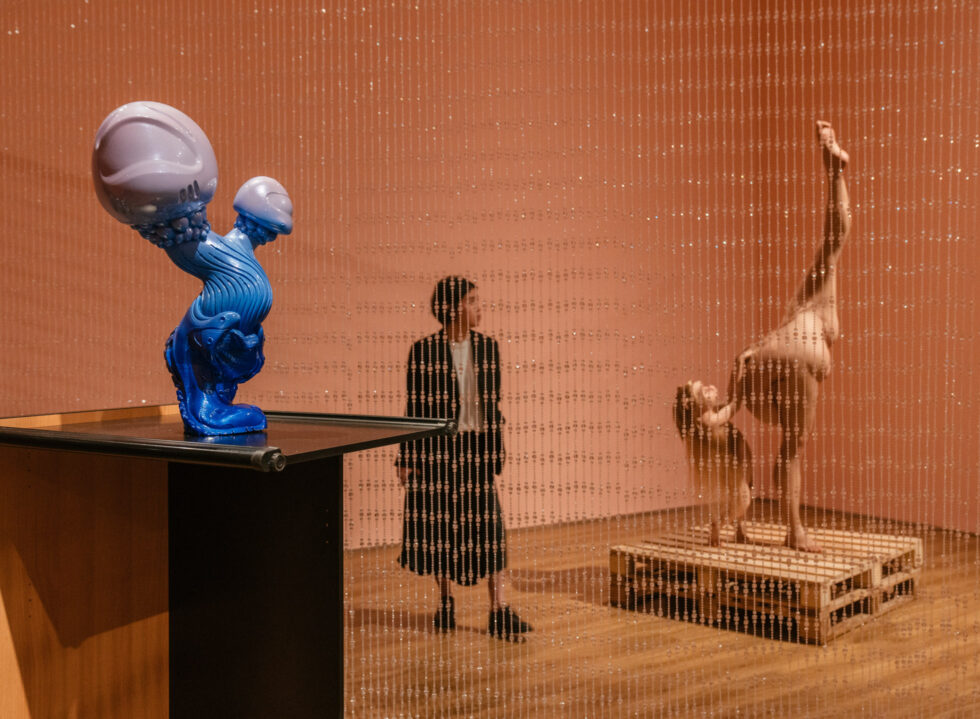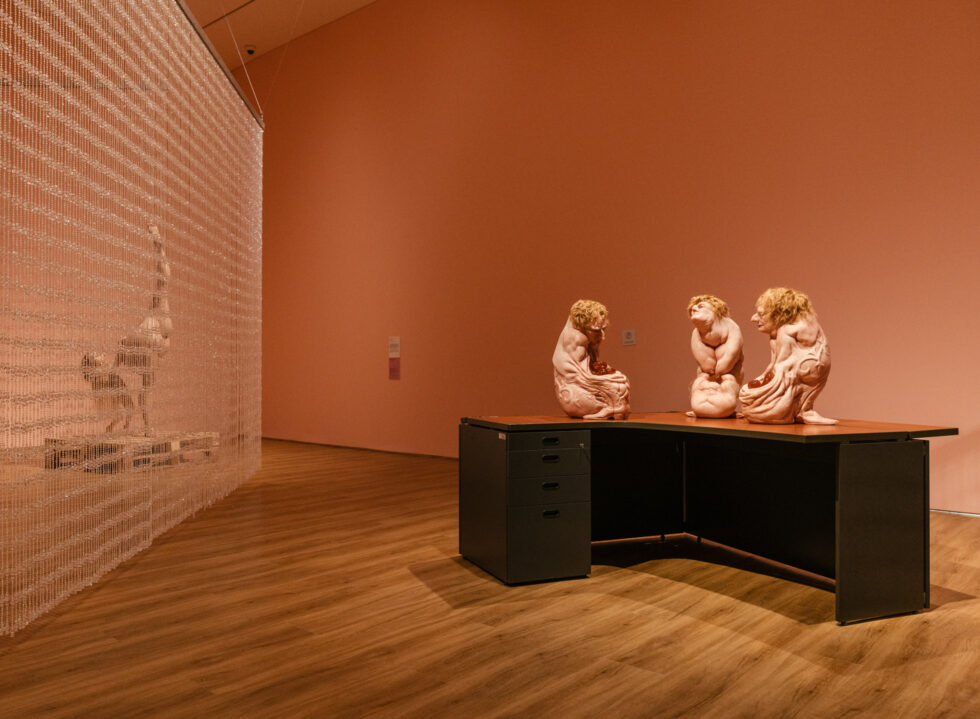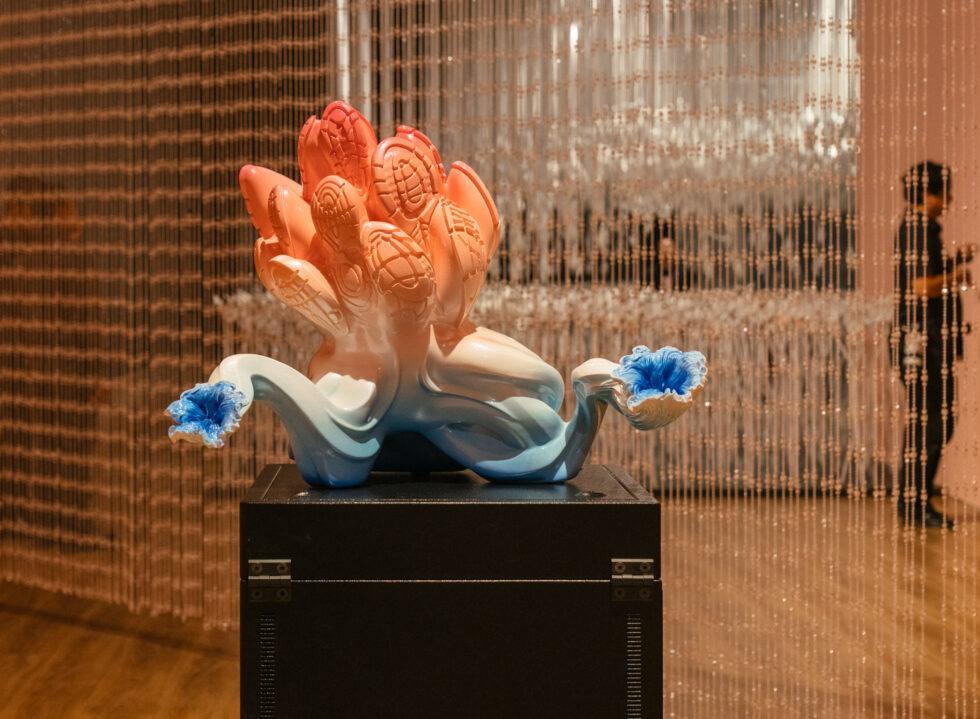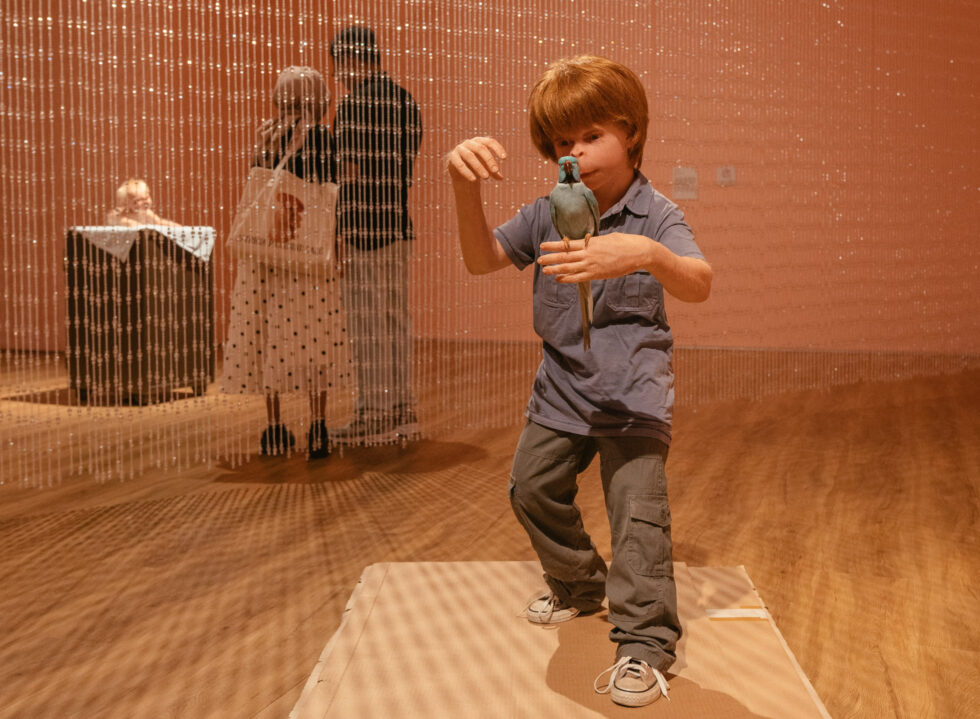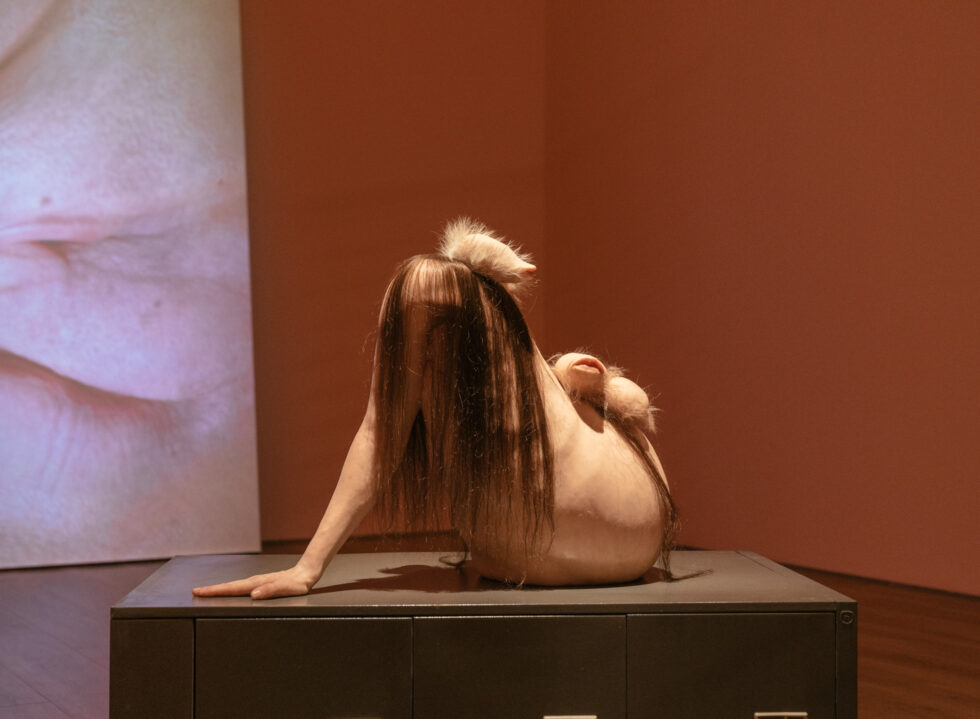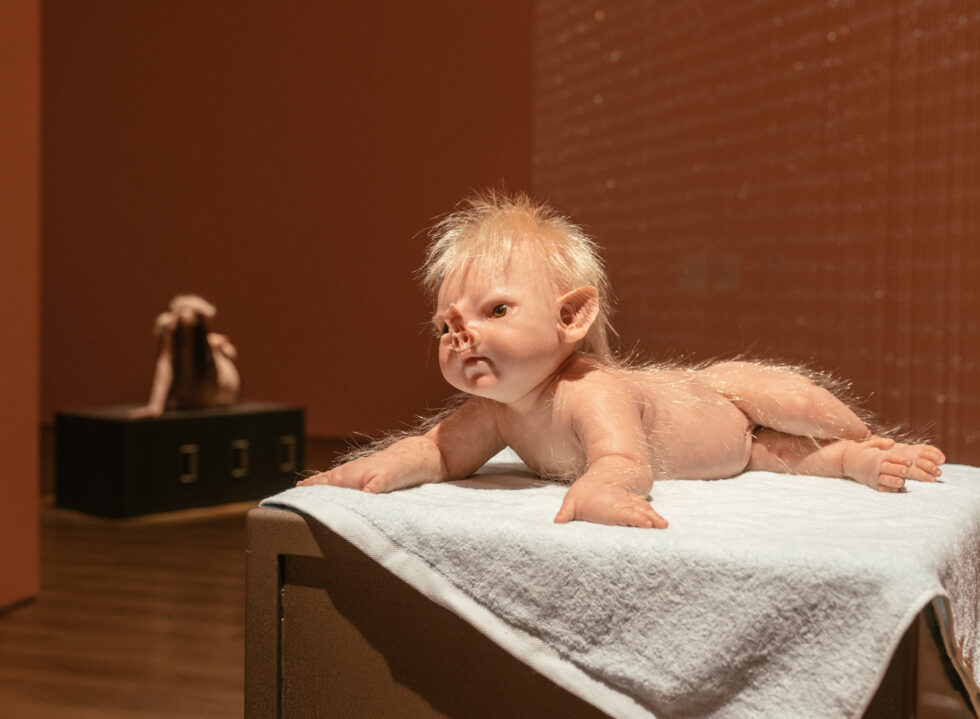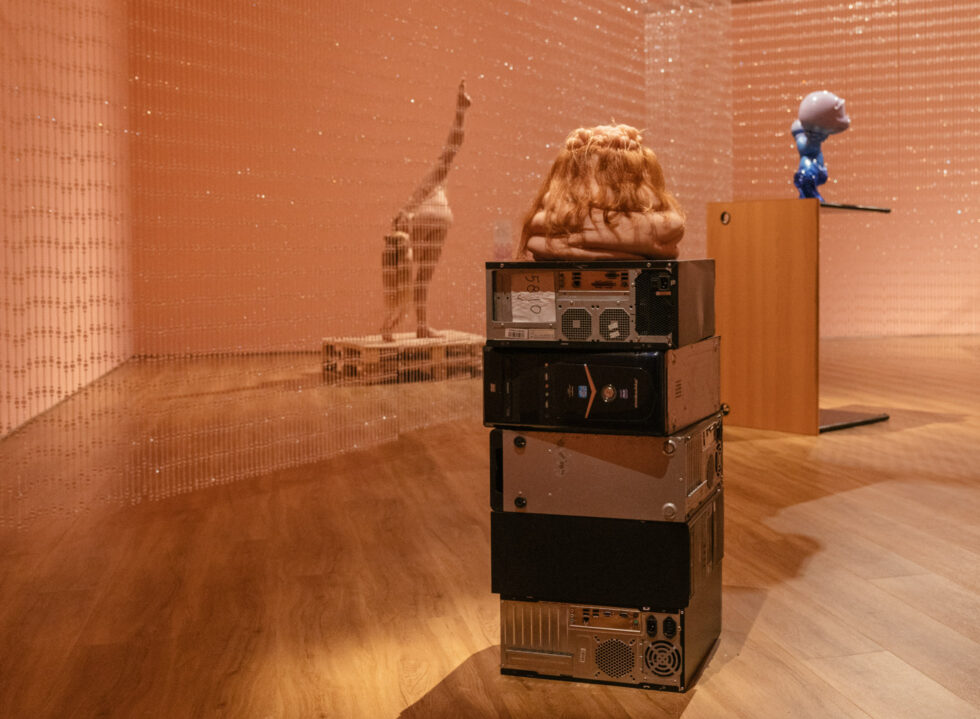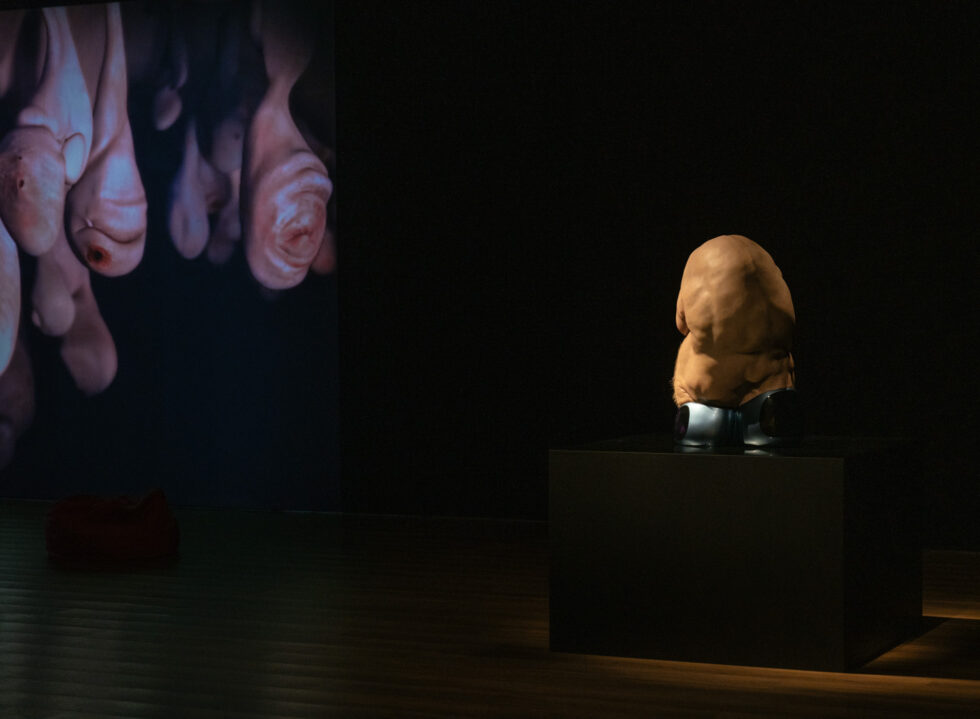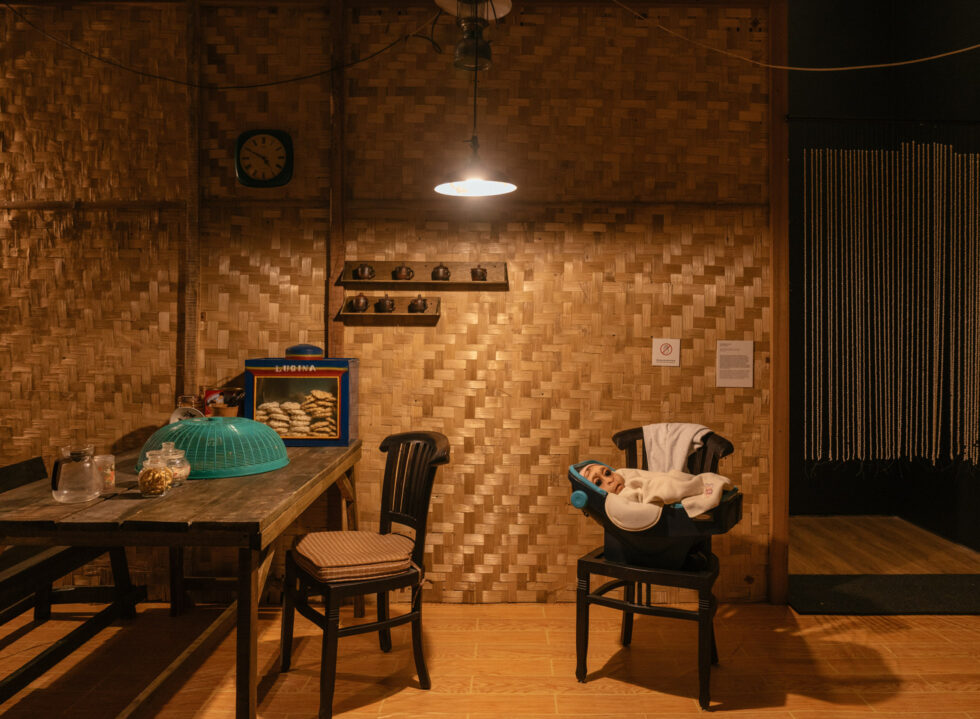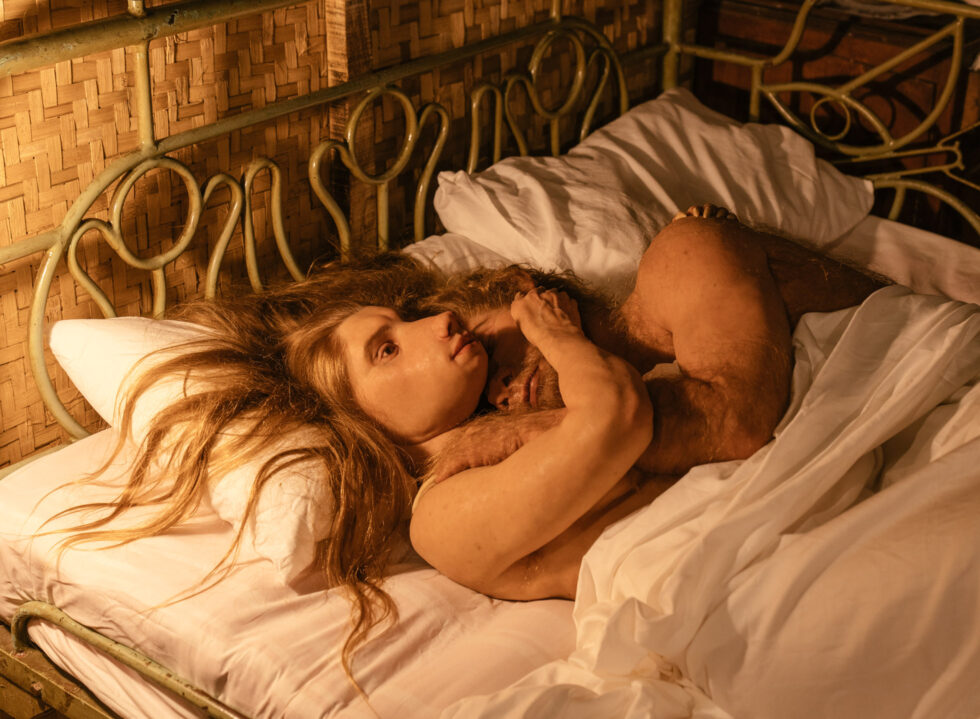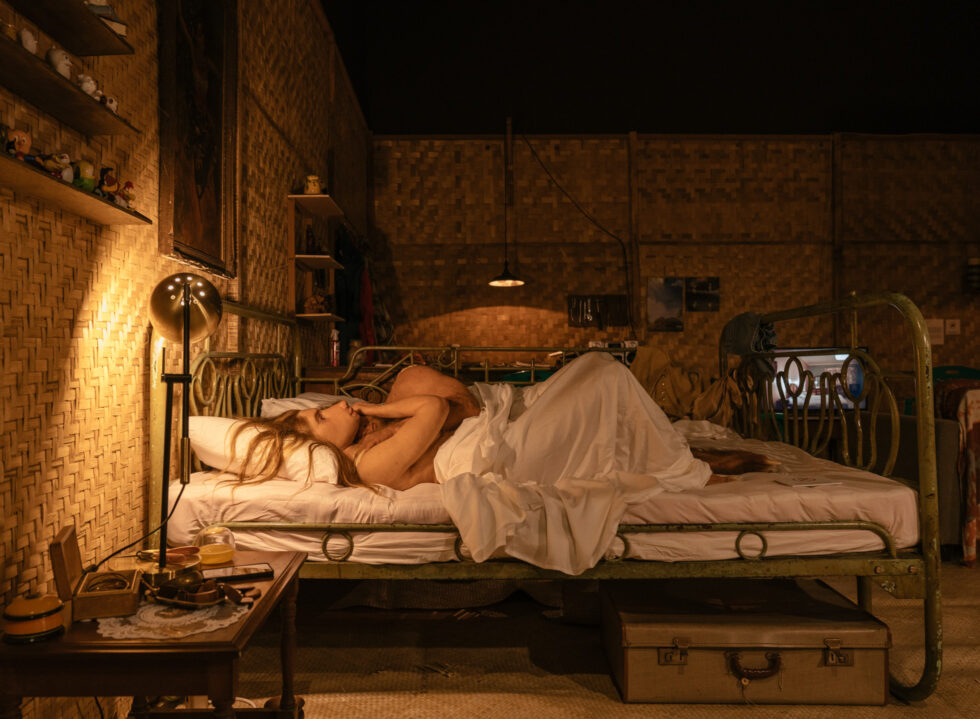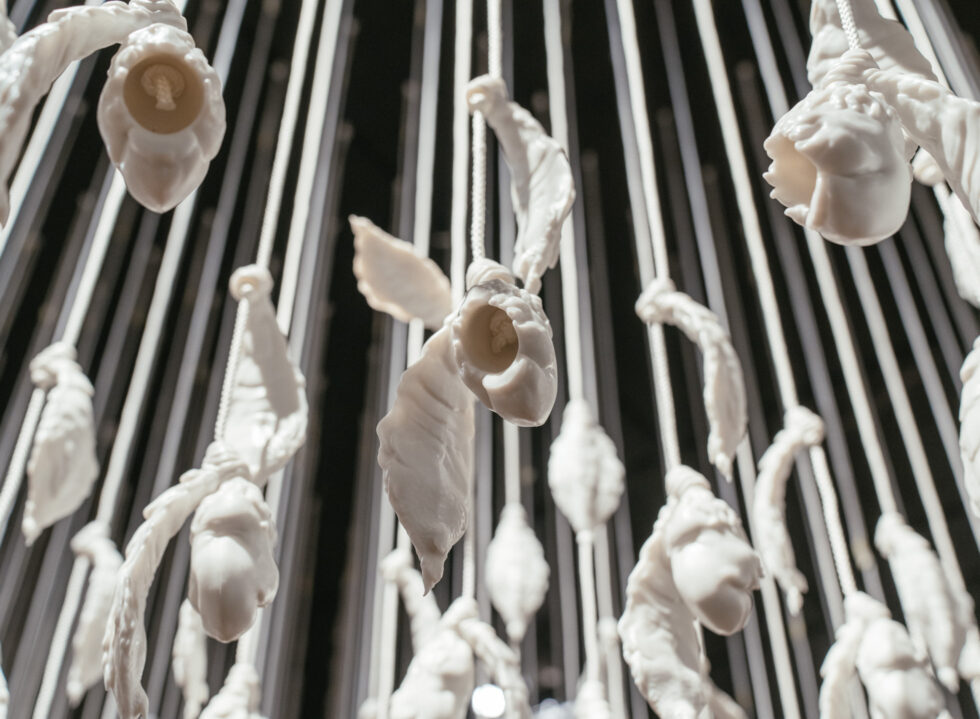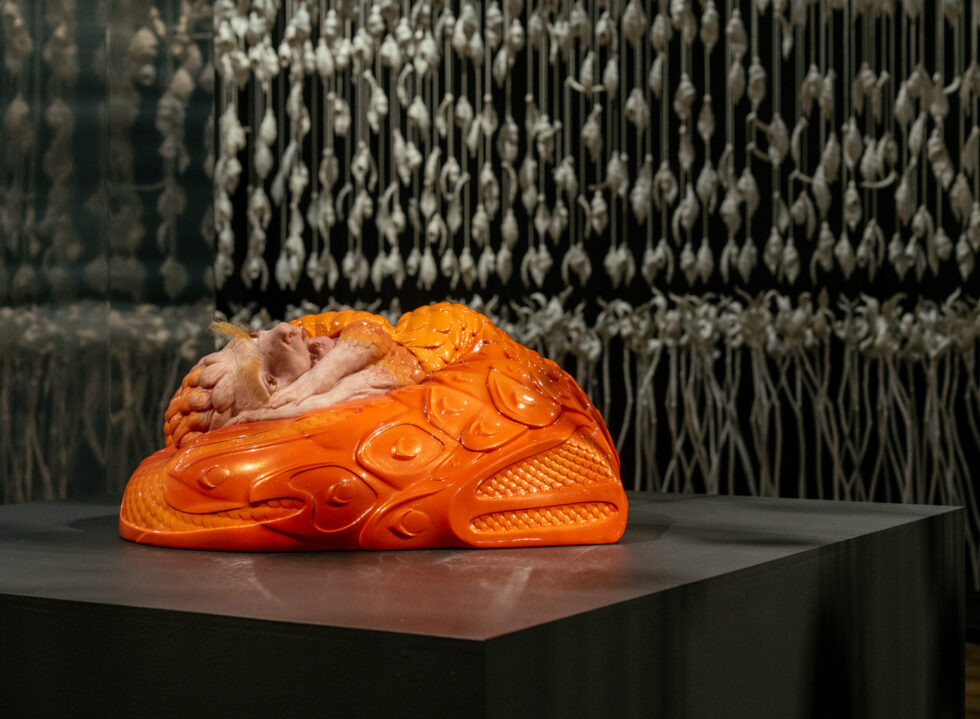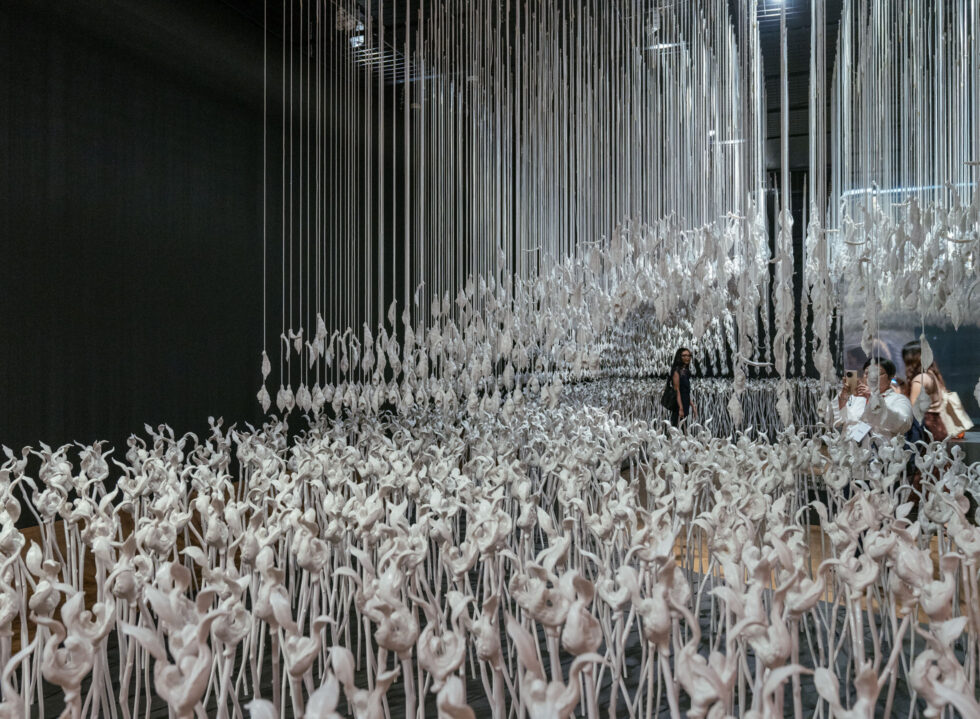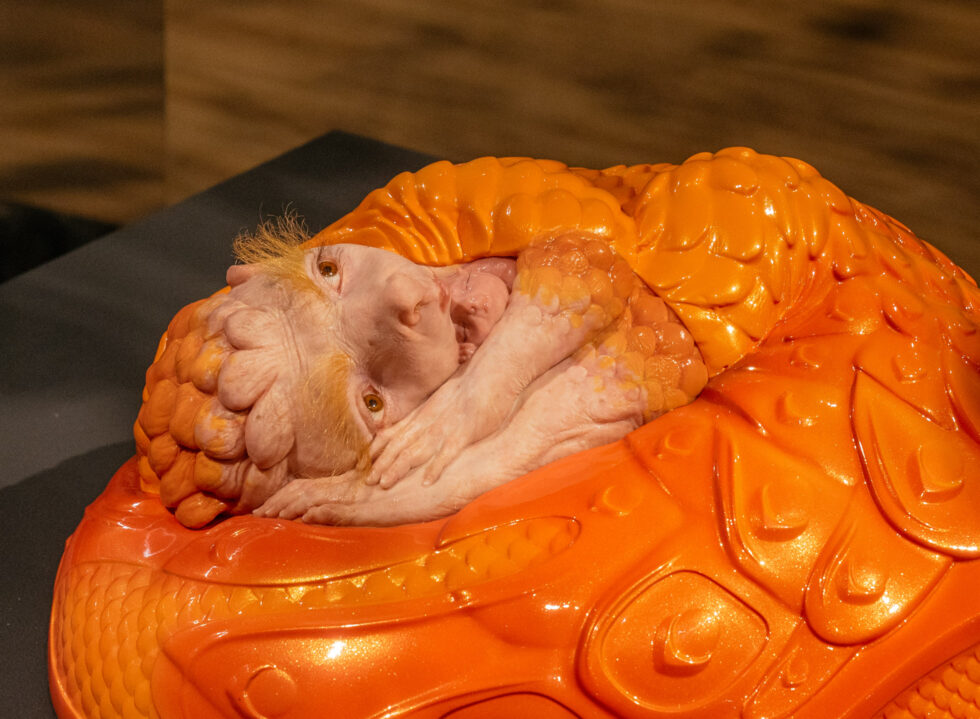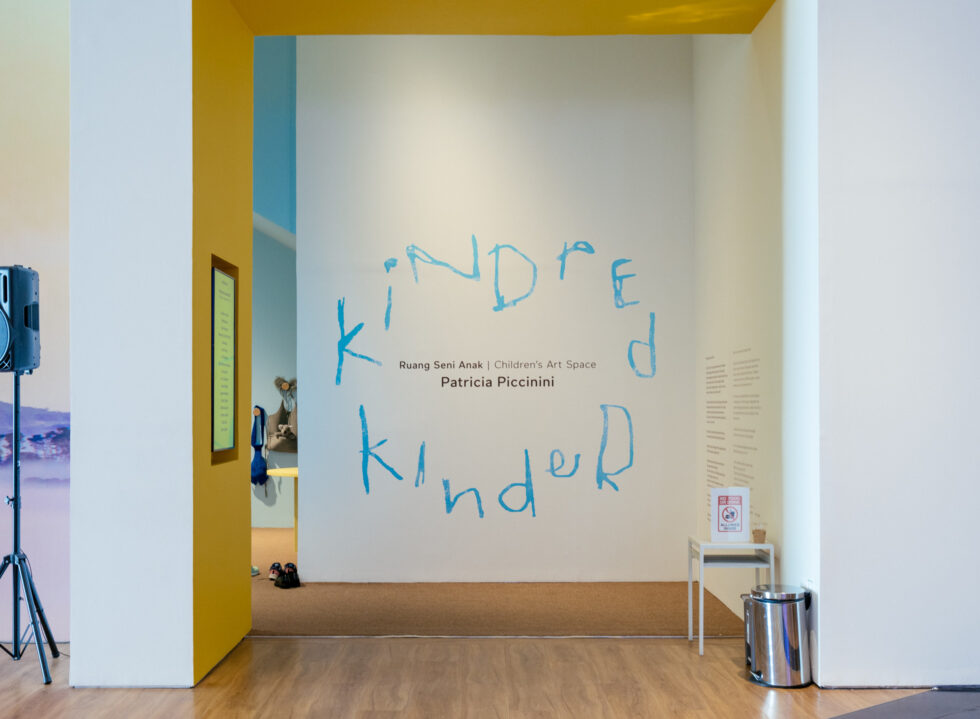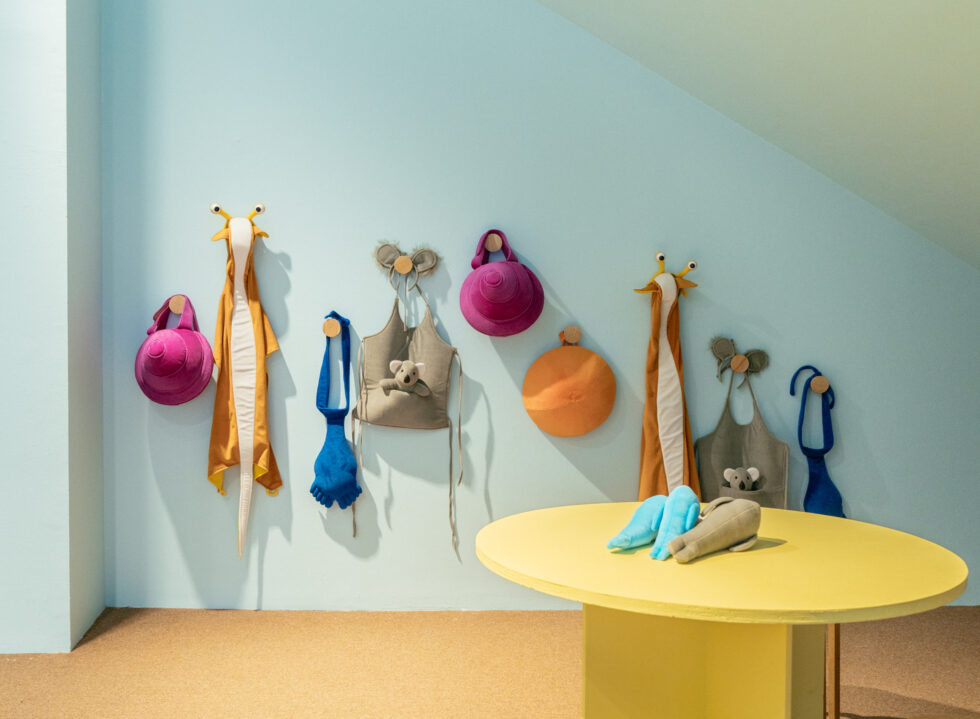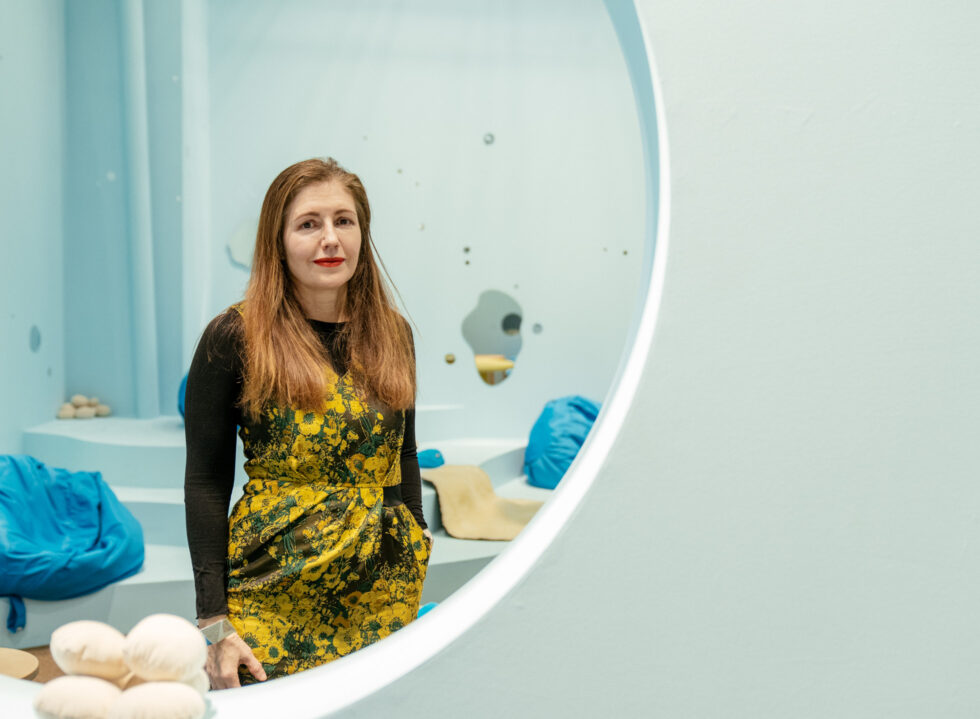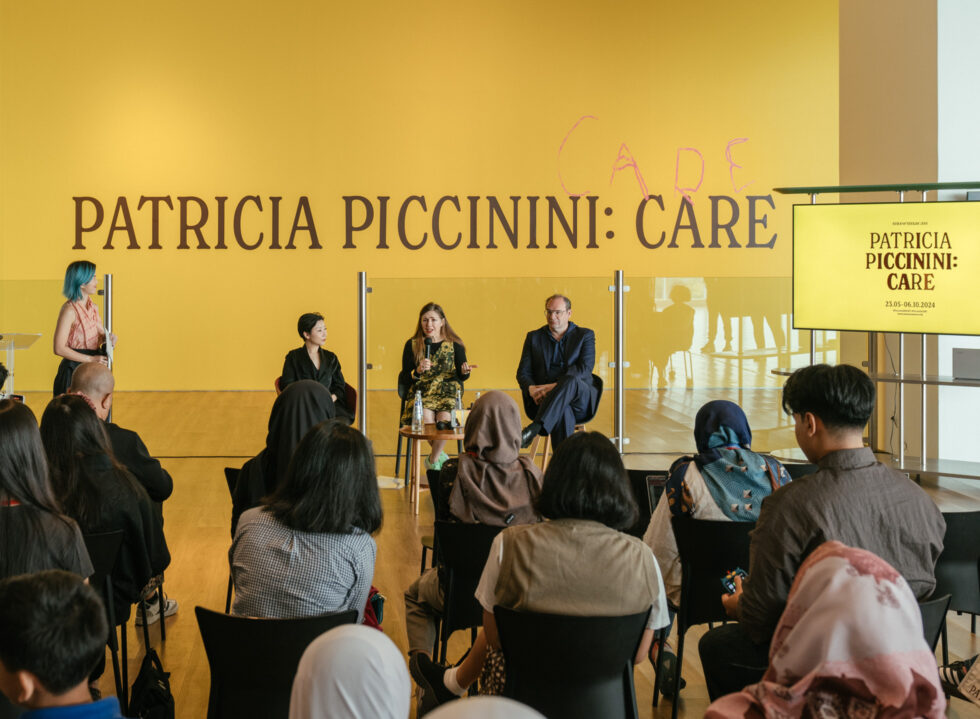“When we view humans apart from nature, we begin to believe we can do whatever we want without consequences,” shared Patricia Piccinini. Through her solo exhibition, ‘CARE’ at Museum MACAN, the Australian artist invites us to reexamine our increasingly ambiguous yet interdependent relationship with technology and nature as she explores the social and emotional implications of artificial constructs within our natural world.
Curated by Tobias Berger, the exhibition opens with ‘The Offering’ (2018), an introduction to the chimeras (multi-species bodily forms) that visitors will encounter throughout the exhibition. Wrapped in a tiny blanket, the baby porcupine-like creature is the only artwork that invites visitors to touch and hold, igniting a sense of curiosity and openness Piccinini hopes visitors will carry throughout the exhibition.
In ‘No Fear of Depths’ (2019), a marine mammal—with a pointed beak and fins resembling an endangered Australian humpback dolphin, a drooping stomach, and searching human eyes—is cradling a little girl casted to resemble Piccinini’s then 12-year-old daughter Roxy, who appears to be taking a nap.
As evident in much of her work, recurring themes of gene manipulation and bioengineering emerge prominently. This evokes an initial sense of discomfort, as visitors navigate through the active tension between the familiar and the foreign expressions of hyper-realistic bodies: a few strands of blonde human hair juts out from its blowhole, its skin wrinkles at the bend of the arm to reveal webbed fingers and hair dusting its fleshy body.
Yet despite these unsettling features, its gentle expression and protective gesture, akin to a mother putting her daughter to sleep, disarm these fears and encourage visitors to move past the discomfort and recognise the commonalities they share with it.
Across the exhibition, Piccinini further expands on the complex relationship between the natural and artificial through various displays of relationships. ‘The Bond’ (2016) explores a maternal attachment, depicting a woman holding a hybrid baby with a distorted body. The baby’s flesh is conjoined and curled like a foetus, with a rounded back mimicking the sole of a running shoe. Yet it bears facial resemblances to the mother, its vulnerable expression further collapsing the boundaries between “us” and “them.”
“We’ve been hard-wired to be cautious, and even repulsed by difference, because in the past we’ve had to be wary of strangers for survival. But that doesn’t quite apply anymore. We can’t quite say they’re not us, that division is harder to discern,” shared Piccinini.
Nearing the end of the exhibition, ‘The Couple’ (2018) presents a scene of intimacy as two human-hybrid creatures lie in an embrace. Set within a traditional Indonesian home, Piccinini draws visitors closer through the familiar domestic landscape and household objects. Offering a happier, alternative ending to Mary Shelley’s 1818 novel, ‘Frankenstein’, the couple—with hybrid bear claws and facial features—portray a sense of contentment yet alienation from the outside world, treading the fragile borders of acceptance and belonging.
In an age where most things are for show, Piccinini’s works reminds us of art’s power to transcend the tangible, prompting introspection into the complexities and responsibilities of our existence. “Spending time with the work, I hope that visitors can experience the transformation from rejection and aversion to empathy, compassion and care—which I believe are the most fundamental touchpoints of evolution.”
The exhibition ‘Patricia Piccinini: CARE’ runs from May 23, 2024 until October 6, 2024 at Museum MACAN. For more details and booking information, click here.
